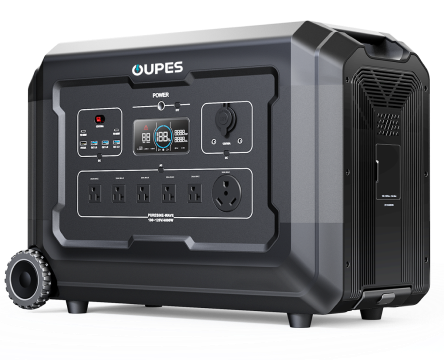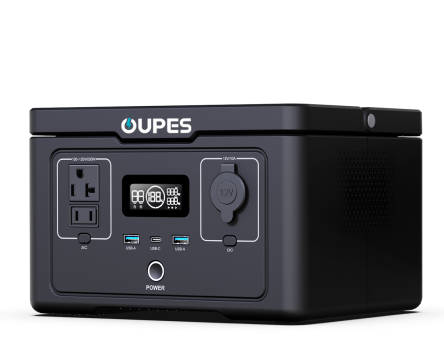
Electric vehicles (EVs) are transforming the way we travel and think about energy. With an increasing focus on sustainability and efficiency, many EV owners are curious about alternative power solutions—especially when they’re away from home. Portable power stations offer the convenience of on-the-go energy, and while they’re primarily designed for smaller appliances, they can play a valuable role in your EV charging strategy.
At OUPES, we’re passionate about smart, reliable energy solutions. In this article, we explore whether portable power stations can charge an EV, what factors you need to consider, and how our innovative OUPES products can be your backup in emergencies and off-grid situations.
Understanding EV Charging Requirements
Charging an electric vehicle isn’t like powering a smartphone or laptop. Here’s what you need to know:
- Battery Capacity: Most EVs come with batteries ranging from 24 kWh to 100 kWh. Fully charging these batteries demands a substantial energy input.
- Charging Levels:
- Level 1 Charging: Uses a standard 120V outlet, providing roughly 1.4 kW of power—ideal for slow, overnight charging but not suited for rapid energy replenishment.
- Level 2 Charging: Operating at 240V, these chargers can deliver between 3.3 kW and 19.2 kW, drastically cutting charging times compared to Level 1.
- DC Fast Charging: With outputs up to 350 kW, these systems quickly charge EVs but require specialized infrastructure far beyond what portable power stations offer.
The key takeaway is that EVs demand high power levels—a challenge for most portable power stations designed to run smaller electronics.
How Portable Power Stations Work for EVs
Portable power stations are engineered to deliver energy when traditional outlets or generators aren’t available. Their compact design and versatile outputs make them an attractive emergency tool. However, when it comes to charging an EV:
- Energy Storage: Typical portable stations offer between 500 Wh and 2000 Wh of storage. In comparison, an EV battery might require tens of thousands of watt-hours for a full charge.
- Output Limitations: Even high-capacity units generally max out around 1000W to 3000W, delivering only a fraction of what’s needed for a complete EV charge.
This means that while a portable power station can’t replace a dedicated charging system, it can provide a temporary boost—enough to get you to the nearest full-service charging station.
Real-World Use Cases for OUPES Portable Power Stations
There are several practical scenarios where OUPES portable power stations can make a real difference for EV drivers:
- Emergency Backup: Imagine being stranded with a nearly empty battery in a remote location. An OUPES portable power station can deliver a crucial charge—just enough power to help you reach a conventional charging station.
- Supplemental Charging: During long road trips or off-grid adventures, our reliable portable solutions can maintain essential functions and add a small boost to your EV battery, ensuring you’re never completely off the grid.
- Solar Integration: Pairing our portable power stations with solar panels creates a sustainable charging ecosystem. This combination is perfect for camping trips or emergency setups, where solar energy replenishes your station, providing additional flexibility when access to traditional power sources is limited.
Choosing the Right Portable Power Solution
When evaluating portable power stations for your EV needs, consider the following:
- Capacity and Output: Ensure the unit has enough storage and the correct output ratings to match your emergency or supplemental charging needs.
- Versatility: Look for models that easily integrate with solar panels for off-grid charging—an option that many OUPES products are optimized for.
- Reliability: In critical situations, you want a power station you can count on. OUPES is dedicated to quality, ensuring our portable power stations deliver consistent performance when you need them most.
Final Thoughts
While portable power stations aren’t designed to fully charge your electric vehicle, they offer a strategic advantage in emergencies and off-grid scenarios. For everyday charging, a dedicated home charger or public charging station remains the best solution. However, with an OUPES portable power station in your toolkit, you gain peace of mind knowing you have a dependable backup ready to bridge the gap when you need it most.
Embrace the flexibility of modern energy solutions and consider OUPES for your portable power needs—your EV (and your adventures) will thank you.


























